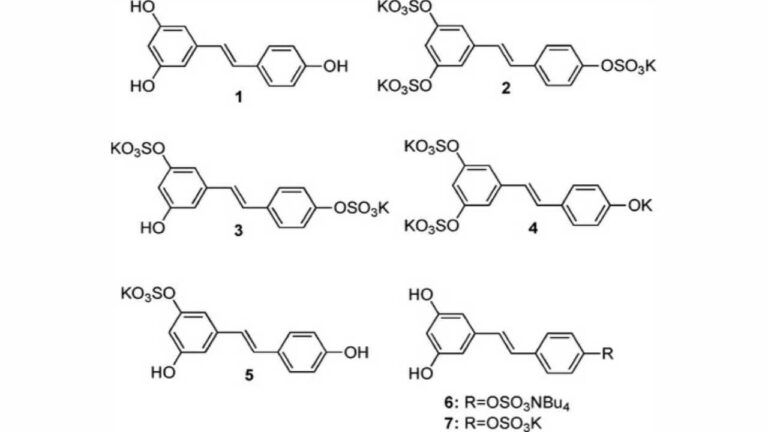Asparagus is a nutrient-rich food that can help treat herpes. Several studies show that asparagus has antiviral properties that can help inhibit the replication of the herpes simplex virus.
Additionally, asparagus is an excellent source of important nutrients for health, such as folic acid, antioxidants, and vitamin C.

Research on Asparagus for treating herpes
There is several research on the medicinal properties of asparagus, including its benefits in treating viral infections like herpes.
A study published in 2015 in the journal “Current Drug Targets” found that asparagus has the ability to inhibit the herpes simplex virus. The researchers concluded that asparagus could be an effective treatment for herpes and other viral infections.
Another study, published in 2013 in the “Journal of Ethnopharmacology”, also found that asparagus possesses antiviral properties that can help treat herpes. The researchers discovered that the compounds present in asparagus have the ability to inhibit the replication of the herpes simplex virus in laboratory cells.
Benefits of Asparagus to help treat herpes
Asparagus is rich in nutrients that are essential for health and can help combat herpes symptoms. Some of the main nutrients in asparagus include:
Folic acid
Folic acid is important for overall health, but especially for people with herpes as it helps maintain a strong immune system. Additionally, folic acid may help prevent future herpes recurrences.
Antioxidants
Asparagus is an excellent source of antioxidants such as vitamin E and glutathione. These antioxidants help protect the body’s cells against oxidative damage caused by free radicals. This is important for overall health, but especially for people with herpes as oxidative stress can trigger recurrences.
Vitamin C
Vitamin C is an important nutrient that helps strengthen the immune system. A strong immune system is essential for fighting herpes infection and preventing future recurrences.
Fiber
Asparagus is rich in fiber, which helps promote digestive health. Healthy digestion is important for keeping the body functioning properly and reducing stress on the immune system.
Low in calories
Asparagus is a low-calorie, nutrient-dense food, making it an excellent choice for people looking to maintain a healthy weight and reduce the risk of chronic diseases.
Anti-inflammatory
Asparagus contains anti-inflammatory compounds such as quercetin and kaempferol, which help reduce inflammation in the body. This is important for people with herpes as inflammation can worsen symptoms and increase the risk of recurrence.
In addition to these specific nutrients, asparagus also contains other compounds that can help treat herpes. For example, asparagus contains an amino acid called asparagine, which is a natural diuretic. This means it can help flush toxins from the body and reduce swelling caused by herpes.
The main nutrients in Asparagus
Asparagus is an excellent source of essential nutrients to support herpes treatment and overall health. A 100-gram serving of raw asparagus contains:
| Nutrient | Amount | % Daily Value |
|---|---|---|
| Calories | 20 | 1% |
| Total Fat | 0.2 g | 0% |
| Sodium | 2 mg | 0% |
| Potassium | 202 mg | 4% |
| Total Carbohydrate | 3.9 g | 1% |
| Dietary Fiber | 2.1 g | 8% |
| Sugars | 1.9 g | |
| Protein | 2.2 g | 4% |
| Vitamin A | 756 IU | 15% |
| Vitamin C | 5.6 mg | 9% |
| Vitamin E | 1.1 mg | 6% |
| Vitamin K | 41.6 mcg | 52% |
| Thiamin | 0.1 mg | 7% |
| Riboflavin | 0.1 mg | 5% |
| Niacin | 0.9 mg | 5% |
| Vitamin B6 | 0.1 mg | 6% |
| Folate | 52 mcg | 13% |
| Pantothenic Acid | 0.3 mg | 3% |
| Calcium | 24 mg | 2% |
| Iron | 2.1 mg | 12% |
| Magnesium | 14 mg | 4% |
| Phosphorus | 52 mg | 5% |
| Zinc | 0.5 mg | 3% |
| Copper | 0.1 mg | 6% |
| Manganese | 0.2 mg | 10% |
| Selenium | 0.2 mcg | 0% |
How to include Asparagus in your diet to Treat Herpes
You can incorporate asparagus into a healthy diet to strengthen the immune system and reduce the frequency of outbreaks and improve your overall health. Here are some ways to incorporate asparagus into your diet:
Steamed or boiled
Asparagus can be steamed or boiled until tender. This preserves its nutrients and flavor. You can add steamed asparagus to salads, pasta, omelets, or consume it as a side dish.
Salads
Asparagus can be a delicious and nutritious addition to salads. You can cut it into smaller pieces and mix it with other vegetables, leafy greens, and healthy salad dressings.
Sautéed
Sautéing asparagus in a small amount of olive oil or coconut oil with spices like garlic and pepper can create a tasty and nutritious dish. You can consume it as a side dish or add it to other dishes like pasta and rice.
Soups and stews
Asparagus can be added to soups and stews to add flavor and nutrients. Add it at the end of the cooking process to maintain its texture and color.
Asparagus juice
If you prefer, you can extract fresh asparagus juice and consume it. Remember that when juicing, you lose some of the fiber present in the vegetable.
Natural Supplements
One way to obtain the nutrients found in asparagus is by consuming natural supplements. This is a convenient and quick option, ideal for those who don’t have enough time to prepare their food.
Remember that it is important to follow a balanced diet, including a variety of nutritious foods in addition to asparagus, to strengthen the immune system and support the treatment of herpes and overall health. Consulting a healthcare professional or a nutritionist can help develop a proper meal plan tailored to your individual needs.
Sumary
Including asparagus in your diet is an easy and tasty way to enjoy its health benefits. However, it’s important to remember that diet is only one part of treating herpes. To effectively treat herpes, you need to follow other healthy practices and consult a healthcare professional.




